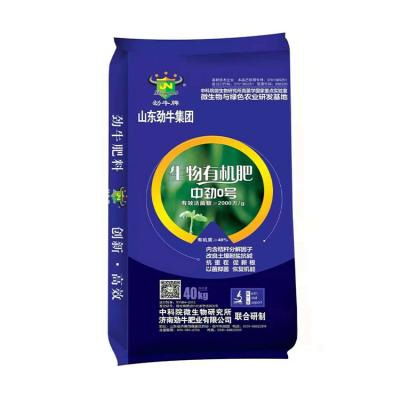How effective is microbial fertilizer for soil improvement?
Microbial fertilizer is a kind of biological fertilizer widely used at present. It is composed of a variety of microorganisms, which can improve soil fertility and improve soil structure. They can reproduce rapidly in the soil, produce a variety of beneficial substances, and help the growth and development of plants. Therefore, microbial fertilizer plays a very important role in agricultural production. Next, we will discuss the improvement effect of microbial fertilizer on soil from the definition, mechanism and application of microbial fertilizer.
1. Definition of microbial fertilizer
Microbial fertilizer is a kind of biological fertilizer composed of a variety of microorganisms, including bacteria, fungi, actinomycetes, etc. These microorganisms can decompose organic matter and release a variety of beneficial substances without causing harm to the soil environment. Microbial fertilizer has high fertilizer efficiency, can promote plant growth, improve plant yield and quality. In addition, microbial fertilizer also has many excellent characteristics such as improving soil structure, enhancing soil fertility, and increasing the number of soil microorganisms.

2. The mechanism of action of microbial fertilizer
Biomass carbon to nitrogen ratio optimization
The microorganisms in microbial fertilizer can reproduce rapidly, decompose and absorb organic matter. Through the metabolic activities of microorganisms, they can convert organic substances into various active substances such as organic acids, enzymes, and cell proteins. These active substances can adjust the biomass and carbon-nitrogen ratio in the microbial fertilizer and improve its effectiveness.
Plant Nutrients
Microbial fertilizers contain a large number of beneficial microorganisms, such as nitrogen-fixing bacteria, phospholytic bacteria, yeasts, etc., which can play an important role. Among them, nitrogen-fixing bacteria can convert nitrogen in the air into ammonia nitrogen that can be absorbed by plants, increasing soil nitrogen content; phospholytic bacteria can produce phosphate by decomposing bacteria, increasing soil phosphorus content; A kind of enzyme substance, promotes the absorption and utilization of nutrients by plants, and enhances the disease resistance and stress resistance of plants.
Improves the microclimate of the soil surface
The microorganisms in the microbial fertilizer can reproduce and form microbial covers such as straw and scab. These covers reduce the temperature and aridity of the soil surface, retain soil moisture, and increase soil fertility. The regulating effect of beneficial microorganisms and cover on the soil environment also helps to improve soil texture and promote the balance of soil microbial communities.
3. Application of microbial fertilizer
The application of microbial fertilizer is very flexible, and it is often used in various plant categories such as natural agriculture, organic agriculture, planting fruit trees, vegetables, flowers and herbs. The specific application method is as follows:
application method
Microbial fertilizers can be used together with other fertilizers such as chemical fertilizers, or applied alone. Generally, different fertilization methods and formulas can be used according to different growth stages of plants. For example, in the initial stage of crop growth, a mixture of biological bacterial fertilizer and chemical fertilizer can be used to quickly supply the nutrients needed by the crop; in the mature stage, biological bacterial fertilizer can be used alone to supplement the nitrogen, phosphorus, potassium and other nutrients required by the crop.
Application rate and period
The application amount and period of microbial fertilizer should be flexibly adjusted according to the plant's demand for nutrients and growth cycle. Under normal circumstances, the amount used per mu does not exceed 200 kg, and it is not recommended to use it when the soil moisture is insufficient, the temperature is low, and the crop is in the seedling stage. Apply during the period of vigorous plant growth, such as when the primary leaves enter the jointing stage.
Storage conditions
Microbial fertilizer is a kind of biological product, storage conditions and timeliness are very important. In general, microbial fertilizer should be stored in a dry, cool and ventilated environment to prevent rodent and insect pollution. It is necessary to check the quality and quality of the microbial fertilizer before use. If it is too humid or the microbial flora is immature, it is not good for the growth and development of plants.
Fourth, the superiority of microbial fertilizer
Microbial fertilizer has the following advantages:
Non-toxic, non-polluting
Microbial fertilizer is composed of natural organic matter and microorganisms, without the use of chemically synthesized fertilizers and pesticides, and will not cause pollution and harm to soil, plants and water sources.
efficient
Microbial fertilizers can quickly decompose basic fertilizers, straw and organic fertilizers, release nutrients needed by a variety of plants, improve plant utilization efficiency, and have multiple functions such as improving soil structure and increasing soil fertility.
Wide applicability
Microbial fertilizers are widely applicable to various soil types and crop categories, especially for improving cultivated land, paddy fields, weakly acidic soil, etc.
mass production
Microbial fertilizers can reduce production costs, improve product quality and yield through large-scale production, thereby reducing fertilizer costs, etc.
improved soil
Microbial fertilizer can improve the physical and chemical properties and structure of soil, increase the number and types of microorganisms, and promote the healthy growth of plants.
To sum up, microbial fertilizer has a very significant effect on soil improvement, can greatly improve soil fertility and crop yield, and is of great significance to the protection and restoration of soil ecological environment. Therefore, in agricultural production, the application of microbial fertilizer should be widely promoted to achieve the goal of sustainable agricultural development.



